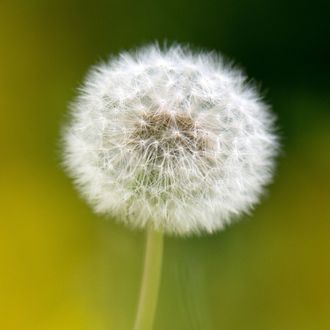
Today in weird attempts to call upon the great and misunderstood power of the First Amendment as America’s official Get Out of Jail Free card: A plaintiff sued Chicago over an ordinance allowing the city to fine anyone who lets very tall weeds take over their yard anywhere from $600 to $1,200. He argued that the viral vegetation law broke the Eighth Amendment prohibition on excessive fines and also “burdens expressive rights under the First Amendment — namely, gardening.”
Federal judge Richard Posner decided that this logic was stupid. “The plaintiff’s claim that the free-speech clause insulates all weeds from public control is ridiculous,” he wrote. “It’s not as if the plaintiff invented, planted, nurtured, dyed, clipped, or has otherwise beautified its weeds, or that it exhibits or intends or aspires to exhibit them in museums or flower shows. Its weeds have no expressive dimension.” At one point in the decision, Posner compared the weeds unfavorably to Marcel Duchamp’s Fountain, a urinal with the artist’s name on it.
“Taken to its logical extreme,” the judge added, gaining steam in his discussion on the grand theory of the role of unloved plants in American society, “the plaintiff’s defense of the weed would preclude any efforts by local governments to prevent unsightly or dangerous uses of private property. Homeowners would be free to strew garbage on their front lawn, graze sheep there, and broadcast Beethoven’s ‘Fifth Symphony’$2 24 hours a day through outdoor loudspeakers — all in the name of the First Amendment.”
The plaintiff, the Discount Inn, has been fined more than 20 times because of junglelike yard conditions and, as Posner points out, is neither an inn nor very good at saving money, based on all the fines it will now have to pay. “Virtually all that we’ve been able to learn about the company is that it owns real estate in Chicago,” Posner wrote in his decision, which is illustrated with several color photographs of weeds found on the internet. “Although the factual vacuum does not prevent our deciding the case, we take this opportunity to advise counsel for future litigants to provide judges with some minimal background information about their clients.”
The Discount Inn’s attorney told The Wall Street Journal that the plaintiff plans on appealing the decision to the Supreme Court, asking the court to give a definitive ruling on whether a weed’s voice — or unconscious need to photosynthesize and spawn like rabbits in every stray speck of dirt — matters.





























